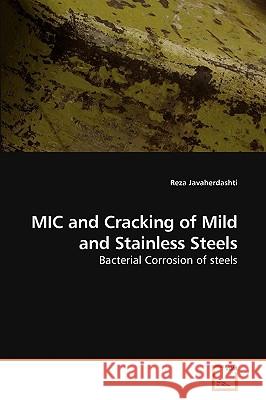MIC and Cracking of Mild and Stainless Steels » książka
MIC and Cracking of Mild and Stainless Steels
ISBN-13: 9783639231410 / Angielski / Miękka / 2010 / 164 str.
Microbiologically influenced corrosion (MIC) is basically an electrochemical corrosion in which the extent and severity of the corrosion process is determined by organisms such as, but not limited to, bacteria. This work will discuss both electrochemical and mechanical features of MIC of three types of steels of frequent use, that is, mild, stainless and duplex stainless steels. The bacteria investigated in this study are single-type cultures of marine isolates of sulphate reducing bacteria, iron reducing bacteria as well as their mixed cultures. This is important because in nature, it is the impact of mixed communities of bacteria that can affect corrosion of engineering materials. Also, to the best knowledge of this author, for the first time the stress corrosion cracking of these steels in biotic cultures containing these bacteria have been characterised and compared with abiotic environments. In conducting this research, techniques such as SSRT (for conducting mechanical tests), OCP (as one of the safest electrochemical methods for studying MIC) as well as XRD, EDXA and metallography have been employed.
Microbiologically influenced corrosion (MIC) is basically an electrochemical corrosion in which the extent and severity of the corrosion process is determined by organisms such as,but not limited to, bacteria. This work will discuss both electrochemical and mechanical features of MIC of three types of steels of frequent use, that is, mild , stainless and duplex stainless steels. The bacteria investigated in this study are single-type cultures of marine isolates of sulphate reducing bacteria , iron reducing bacteria as well as their mixed cultures. This is important because in nature, it is the impact of mixed communities of bacteria that can affect corrosion of engineering materials. Also, to the best knowledge of this author, for the first time the stress corrosion cracking of these steels in biotic cultures containing these bacteria have been characterised and compared with abiotic environments. In conducting this research, techniques such as SSRT (for conducting mechanical tests), OCP (as one of the safest electrochemical methods for studying MIC) as well as XRD, EDXA and metallography have been employed.











